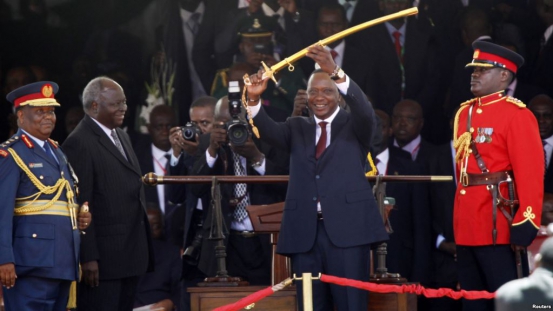×
The Standard e-Paper
Stay Informed, Even Offline

Uhuru Kenyatta was sworn in as Kenya's fourth president in 2013 (April 9, 2013) to thunderous cheers from tens of thousands of supporters.
Officials had to appeal for quiet as the crowd chanted Uhuru’s name and roared in support as they danced.